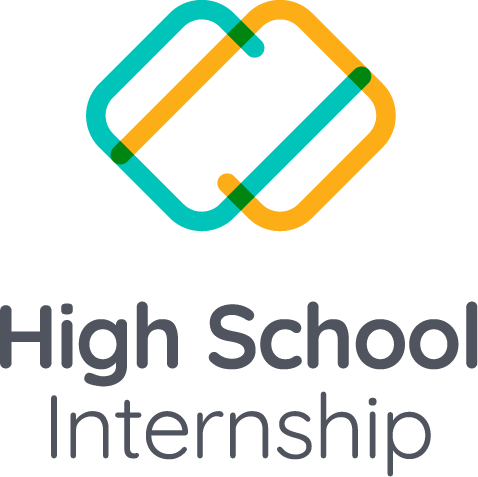For non-technical people, the digital terms coding, computing, and programming are synonymous. Therefore the issue is irrelevant. However, each sector has its own collection of terms with distinct meanings and contexts. This is especially true when discussing technology, which is always evolving. For instance, “spam” isn’t edible, “bugs” are not insects, and an “Easter Egg” is not just used at Easter.
The meanings of coding and programming differ depending on who you ask and the industry you work in, leading to a state of confusion.
As the Hour of Code week approaches, we have invited our VP of Education, Mark Barnett, and our CTO, Nickey Khemchandani, to reflect on the significance of digital terms, what counts in coding education, and how educators and technologists may benefit from collaboration.
What’s the difference between coding and programming in digital terms?
Nickey Khem: Coding is the translation of Code from one language to another. Coding doesn’t deal with complicated issues. Programming, on the other hand, is the act of producing code using algorithms and thorough analysis.
For example, Coding languages such as HTML and CSS focus on structure and designing an interface. As a programming language, JavaScript is used to develop functionality.
Mark Barnett: The difficulty with using these digital terms interchangeably is that they generalize roles that need diverse skill sets.
Does the misuse of digital terminology create a problem?
NK: Absolutely! Misusing terminology can start a serious communication breakdown further down the line. I have had situations where two parties were misusing terms, leading to confusion in requests.
Issues arise as people try to understand how much something would cost and mentioning buzzwords like Big Data and Real-Time Analytics, which, while popular, can be highly expensive.
Which digital terms have had the most impact in the education technology industry?
MB: To me, “Computational thinking” seems to have had the biggest influence on students since these skills may be applied to non-tech related situations, giving students with new skills and capacities in critical thinking.
We commonly use a computational thinking cornerstone called “abstraction” at BSD Education. This means you focus only on the important details while ignoring irrelevant information.
In our project, “The People Who Inspire Me,” we guide students through the process of creating a single webpage. Students highlight three people who inspire them, but we break each step down into objectives. We also assist with HTML and CSS syntax. It allows students to focus on each component until the project is complete.
What needs to change in the educational system today?
NK: The digital curriculum taught in schools must be updated to be relevant. Students today live in a completely different world than in the 1980s and 1990s. More than ever, curricula should contain practical, real-world examples. In communication, for example, the use of social media must be incorporated. However, in some educational systems, the focus is mainly on historical techniques.
MB: As Nickey said, curriculum relevance is an important component of change that must be addressed. With tech education, it’s best to teach children through projects. Project-based learning allows them to create something useful or functional rather than learning through textbooks or tutorials. For example, your first webpage or a virtual reality environment with sophisticated systems are both projects at BSD.
Should coding be for everyone?
MB: One amazing thing that Hour of Code has done is expose children all across the world to programming, even if just for one hour. Coding, like reading and writing, opens you new ways to share your knowledge, ideas, and voice with the world.
NK: Coding can be a form of creative expression, but it can also lead towards understanding new ways to break down problems into smaller steps and solve unique challenges. While we certainly don’t expect every child to become professional technologists, we want children to have some conceptual understanding of how the technologies that they use every day, work.
What can educators and technologists learn from each other by collaborating?
MB: As a teacher, I believe my role is to assist teachers and students comprehend technology in manageable portions. To do this effectively, I need to understand technology well enough to foresee difficulties. Consulting experts is a great way to learn more about learning technology. At BSD, I regularly talk with Nickey, our CTO, to better understand technological concepts. We discuss big ideas, technical details, and our passion for sharing knowledge.
NK: My role is often to bring the latest and complex technology into the hands of individuals and in BSD’s case, teachers and students. This is, however, easier said than done as a lot of technology requires complex predefined understanding, which is not accessible to someone that well versed in technology to start with.
This is where I really think the value of having educators on the team, such as our VP of Education, Mark helps.
As a result of our collaboration, we are able to incorporate the most up-to-date educational pedagogies and cutting-edge technology into our curriculum and platform. As a technologist, I have greatly benefited from educators’ ability to better explain digital terms, allowing us to reach more customers.
Conversely, technologists are always on the pulse of the latest happenings in several businesses. Educators benefit from shared research and development, from curriculum evolution to digital tools that increase student engagement.
~~
Whether you are new to coding or are a seasoned professional, we invite you to try a few of our coding projects during the Hour of Code. Mark and the Education Team at BSD developed 6 unique projects that guide students through programming with HTML, CSS, and JavaScript to complete projects in a series called “Code is: Your Voice,” where students are invited to use code as a way to share what’s most important to them. So check them out and let us know what you think.


